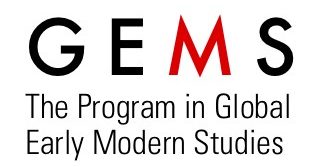
Deadline extended until 11/22/22 for Shakespeare workshop in New Orleans
Tulane University encourages colleagues and friends to apply to our spring weekend workshop, “Rac(e)ing the Shakespearean Archive,” a multi-disciplinary deep dive into issues of race and Shakespeare studies as these have arisen historically in one of America’s most fascinating cities, and as they are enacted today, in archival and performance studies, in New Orleans and across America.
Participants will visit several different New Orleans-based archives, where they will have the opportunity to do hands-on work with primary materials related to the theme of race and Shakespeare. They will also visit several theatrical spaces across the city where actors and other artists engage the complexities of race and Shakespeare. The workshop will begin on campus at Tulane University and then move through Uptown New Orleans into the French Quarter. It will open with a keynote dialogue between Dr. Kara Tucina Olidge, former director of the Amistad Center at Tulane, now Associate Director for Collections and Discovery at the Getty Research Institute, and Dr. Ayanna Thompson, Director of the Arizona Center for Medieval and Renaissance Studies and a leading authority on race and Shakespeare.
Graduate students and both early and late-career scholars are cordially welcome to apply for admission and travel funding.
Rac(e)ing the Shakespearean Archive: Antebellum, Civil War, and Reconstruction New Orleans (spring weekend workshop)
Organized by Michael P. Kuczynski and John “Ray” Proctor
Co-sponsored with the Departments of English and Theatre and Dance at Tulane University, in conjunction with the New Orleans Center for the Gulf South at Tulane (NOCGS).
Provocatively defining the archive to include publications, performances, adaptations, and influences, this workshop will adopt a critical approach to “Shakespeare” in New Orleans, one of America’s most racially diverse cities. The period before, during, and after the Civil War witnessed a consistent engagement with Shakespeare’s work in New Orleans and the American South generally which inevitably reflected the racial dynamics of the city, one of America’s most important ports and a center of the American slave trade. Nineteenth-century New Orleans’ engagement with Shakespeare, in turn, influenced twentieth-century reactions to the playwright and his works in the city and continues to impact Shakespeare’s adaptation and use in twenty-first-century classrooms, libraries, streets, and theatres. Among the topics to be discussed will be acting, the semiotics of race in performance, and the performative implications of color-conscious casting; the collecting, printing, and reading of Shakespeare’s plays and their role in elementary and higher education; and Shakespeare’s presence in Mardi Gras and related forms of cultural spectacle. Special focus will be given to Shakespeare’s status within contemporary Critical Race Studies.
Visit the Institute website for the full workshop description.
Applications are due Tuesday, November 22. Funding is available for all Folger Institute consortium affiliates.




